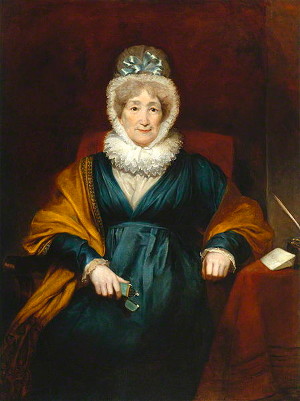
In What the Butler Saw, E.S. Turner reviews the bizarre case of Hannah More, whose servants formed a conspiracy to rob and defraud her. “The most shameless peculation prevailed in the kitchen,” noted the Rev. Henry Thompson. “Orders were issued to the tradesmen in her name of which the servants reaped the benefit. Monies given for charity were appropriated by the servants.”
Worse, the servants held silent parties below stairs after More had retired for the night. At midnight, the servants from neighboring houses would converge on her home in Somerset, “some creeping through hedges, others descending down laurel walks or emerging from thickets” to enjoy “hot suppers laid out with parlour-like elegance.”
Eventually, tired of keeping quiet, they began to organize balls at a hall a mile away. A suspicious guest of More’s, spying from a window, saw the servants depart the house, dressed up and led by the housekeeper and coachman arm in arm. A scullery maid was left behind to admit the returning servants in time for morning prayers.
Told of this, More asked in a faltering voice, “What, Susan unfaithful, who has lived with me so many years?” “Yes.” “And Timothy, whose relations I have fed and clothed?” “Yes.” “And Teddy and Rebecca and Jane?” “Yes, all.” “What? Not one faithful?” “The whole are faithless!”
More resolved to leave them all and find a new home where she could spend her last days “in calmness, prayer, and praise.” She summoned the villains to the drawing room and told them, “You are no longer my servants. By deserting me and my house at midnight to pursue your revels, you all proved yourselves to be unworthy of my confidence. Your unprincipled conduct has driven me from my home, forced me to seek a refuge among strangers.”
She left a quarter’s wages for each of them and departed in a friend’s coach. “I am driven like Eve from Paradise,” she said, “but not by angels.”
